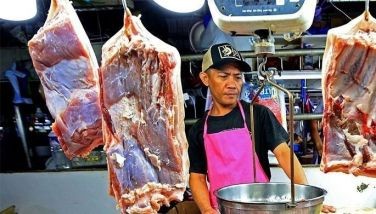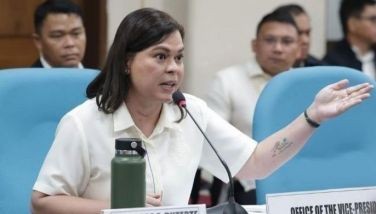RP to keep liberal stance on foreign capital inflows
December 20, 2006 | 12:00am
The Philippines, aiming to attract overseas funds, said it will keep a liberal stance on inflows, after the Thai central bank decided to levy a 10 percent fine on foreign investors taking out their money within a year.
"Country-specific conditions require country-specific measures," Bangko Sentral ng Pilipinas (BSP) Governor Amando Tetangco Jr. said in a statement yesterday. "Foreign-exchange inflows are an important driver of economic growth. We shall ensure the consistency of our policy with this principle."
Thailand’s central bank yesterday told banks to lock up 30 percent of new foreign-currency deposits for a year to curb speculation on its currency and reduce inflows.
The BSP announcement "is the perfect reaction" after Thailand’s decision rattled the market, said Roland Avante, executive vice president and treasurer at the Philippine unit of Chinatrust Commercial Bank, Taiwan’s largest privately owned lender. "Now’s not the right time to institute measures because it may create more exchange-rate volatility."
The plans of the BSP to review policies on dollar sales and the holdings of Philippine banks would be mainly "for prudential regulatory reasons" and not to curb speculation, Tetangco said. The current liberal stance "remains appropriate" for the Philippines, he said.
Thailand’s new regulations require investors to lock up 30 percent of foreign exchange deposits for a year to deter speculation. Starting with funds transferred to Thailand, overseas investors will be penalized 33 percent of that 30 percent portion to withdraw funds within one year.
Philippine monetary authorities, which earlier slotted the review of banks’ dollar position this month, may defer the plan.
"It can wait," Tetangco said, without elaborating.
The central bank announced as early as October a plan to allow banks to hold more dollars to encourage them to buy more foreign currency and temper exchange-rate movements.
Early this month, Tetangco said monetary authorities may also introduce limits on the amount of dollars banks can sell "to reduce volatility in the foreign-exchange market."
"Country-specific conditions require country-specific measures," Bangko Sentral ng Pilipinas (BSP) Governor Amando Tetangco Jr. said in a statement yesterday. "Foreign-exchange inflows are an important driver of economic growth. We shall ensure the consistency of our policy with this principle."
Thailand’s central bank yesterday told banks to lock up 30 percent of new foreign-currency deposits for a year to curb speculation on its currency and reduce inflows.
The BSP announcement "is the perfect reaction" after Thailand’s decision rattled the market, said Roland Avante, executive vice president and treasurer at the Philippine unit of Chinatrust Commercial Bank, Taiwan’s largest privately owned lender. "Now’s not the right time to institute measures because it may create more exchange-rate volatility."
The plans of the BSP to review policies on dollar sales and the holdings of Philippine banks would be mainly "for prudential regulatory reasons" and not to curb speculation, Tetangco said. The current liberal stance "remains appropriate" for the Philippines, he said.
Thailand’s new regulations require investors to lock up 30 percent of foreign exchange deposits for a year to deter speculation. Starting with funds transferred to Thailand, overseas investors will be penalized 33 percent of that 30 percent portion to withdraw funds within one year.
Philippine monetary authorities, which earlier slotted the review of banks’ dollar position this month, may defer the plan.
"It can wait," Tetangco said, without elaborating.
The central bank announced as early as October a plan to allow banks to hold more dollars to encourage them to buy more foreign currency and temper exchange-rate movements.
Early this month, Tetangco said monetary authorities may also introduce limits on the amount of dollars banks can sell "to reduce volatility in the foreign-exchange market."
BrandSpace Articles
<
>
- Latest
- Trending
Trending
Latest
Trending
Latest
Recommended





























